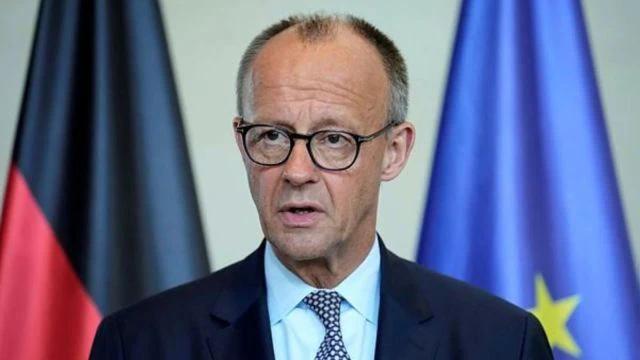
Germany Must Look for New Trade Partners: Merz on Rising US Tariffs
In a move that signals a shift in Germany’s trade strategy, Chancellor Friedrich Merz has urged the country to explore new trade partners beyond the United States, citing concerns over rising tariffs and unreliable trade relations. Merz’s comments come at a time when global trade tensions have reached a boiling point, with the US imposing tariffs on several countries, including Germany, and sparking retaliatory measures.
Speaking to the press, Merz emphasized the need for Germany to diversify its trade relationships and seek out partners that share its values and adhere to international trade rules. “How do we handle trade if, for example, the Americans don’t play by WTO rules?” he asked. “We should search for partners that share our thinking.”
Merz’s comments are significant, as Germany has traditionally relied heavily on the US as a major trading partner. However, the increasing uncertainty and unpredictability of US trade policies have made it essential for Germany to explore alternative options.
In recent months, the US has imposed tariffs on a range of German products, including cars, machinery, and steel, sparking retaliatory measures from Germany. The trade tensions have also had a significant impact on the global economy, leading to increased uncertainty and volatility in financial markets.
Merz’s proposal to strengthen ties with other regions, such as South America, Asia, and Africa, is seen as a pragmatic response to the changing global trade landscape. These regions offer significant economic opportunities, and Germany has already made significant strides in strengthening its trade relationships with countries such as China, India, and Brazil.
One of the key benefits of expanding trade relationships beyond the US is that it would allow Germany to reduce its dependence on a single market. This would not only mitigate the impact of US tariffs but also provide a more stable and predictable trading environment.
Furthermore, Merz’s proposal to seek out partners that share Germany’s values and adhere to international trade rules is significant. The US has been accused of violating WTO rules on several occasions, and Germany has been vocal in its criticism of the US’s protectionist trade policies.
By seeking out partners that share its values, Germany would be able to maintain a consistent and predictable trading environment, which would be beneficial for both German businesses and consumers. It would also allow Germany to play a more active role in shaping global trade policies and promoting a rules-based trading system.
In addition to the economic benefits, Merz’s proposal to strengthen ties with other regions would also provide an opportunity for Germany to engage with emerging markets and promote its values and interests globally.
South America, in particular, offers significant economic opportunities for Germany. The region is home to several large and growing markets, including Brazil, Argentina, and Chile, which are all seeking to strengthen their trade relationships with Europe.
Asia is also a key region for Germany, given its significant economic ties with countries such as China, Japan, and South Korea. Germany has already made significant strides in strengthening its trade relationships with these countries, and there is scope for further cooperation and expansion.
Africa is another region that offers significant economic opportunities for Germany. The continent is home to several large and growing markets, including Nigeria, South Africa, and Egypt, which are all seeking to strengthen their trade relationships with Europe.
In conclusion, Merz’s proposal to seek out new trade partners beyond the US is a pragmatic response to the changing global trade landscape. By diversifying its trade relationships and seeking out partners that share its values and adhere to international trade rules, Germany would be able to maintain a consistent and predictable trading environment, reduce its dependence on a single market, and promote its values and interests globally.
As the global trade landscape continues to evolve, it is essential for Germany to remain adaptable and responsive to changing circumstances. By exploring new trade partnerships and strengthening its ties with other regions, Germany can ensure a stable and prosperous trading environment for years to come.
Source:



